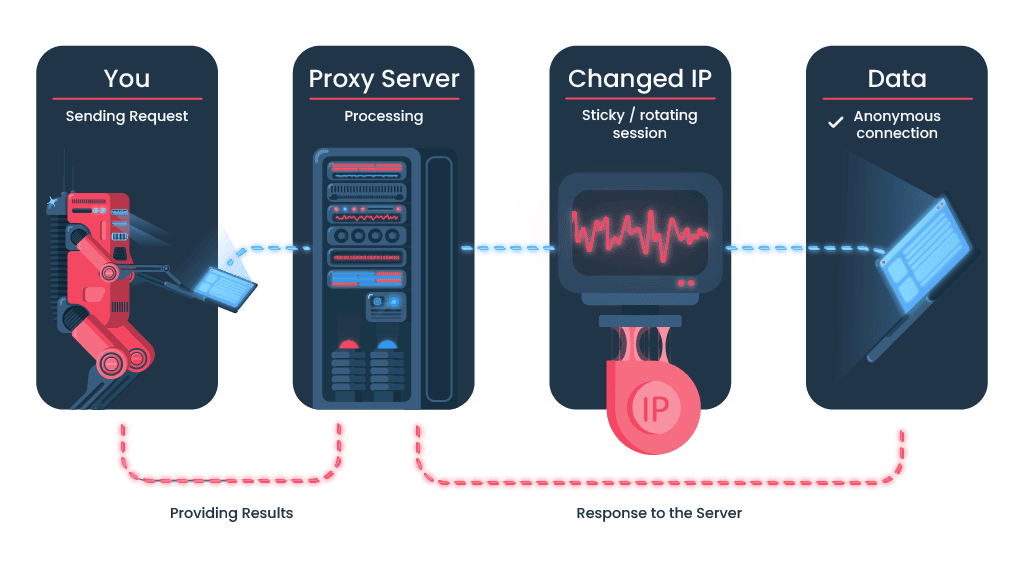A residential proxy is an intermediary between somebody’s personal computer and the Internet. It uses an IP address provided by an Internet Service Provider (ISP) and indicates a certain physical location.
A residential IP address is an IP address tied to a physical device, for example, a mobile phone or desktop computer. Their real owners, Internet Service Providers, register residential IP addresses in public databases, which lets websites determine the device's internet provider, network, and location. Most online services recognize residential IP addresses as real people, as opposed to those who use datacenter IPs.
Unlike regular residential proxies, which simply hide your real IP behind another IP, rotating residential proxies, also known as backconnect proxies, conceal you behind a pool of proxies. These proxies switch between themselves with every session or at regular intervals.
When you integrate our proxies with your software, all your traffic is routed through a residential IP pool.
Still have questions about what residential proxies are? Learn more about it on our blog.

You can:
1) Route your traffic through a specific location (country, city, or US state or ZIP code) or let it rotate randomly.
2) Choose if you need to get a new IP with each new request or use a sticky session to keep the same IP for a longer period.
Still not sure how to use our residential proxies? Check out our detailed instructions.
Have questions? Don’t hesitate to ask us via LiveChat or at [email protected].
Not using Decodo yet? Get your account!
Unlock 125M+ IPs in 195+ Locations
Claim your free trial and collect web data without CAPTCHAs, IP bans, or geo-restrictions.
14-day money-back option